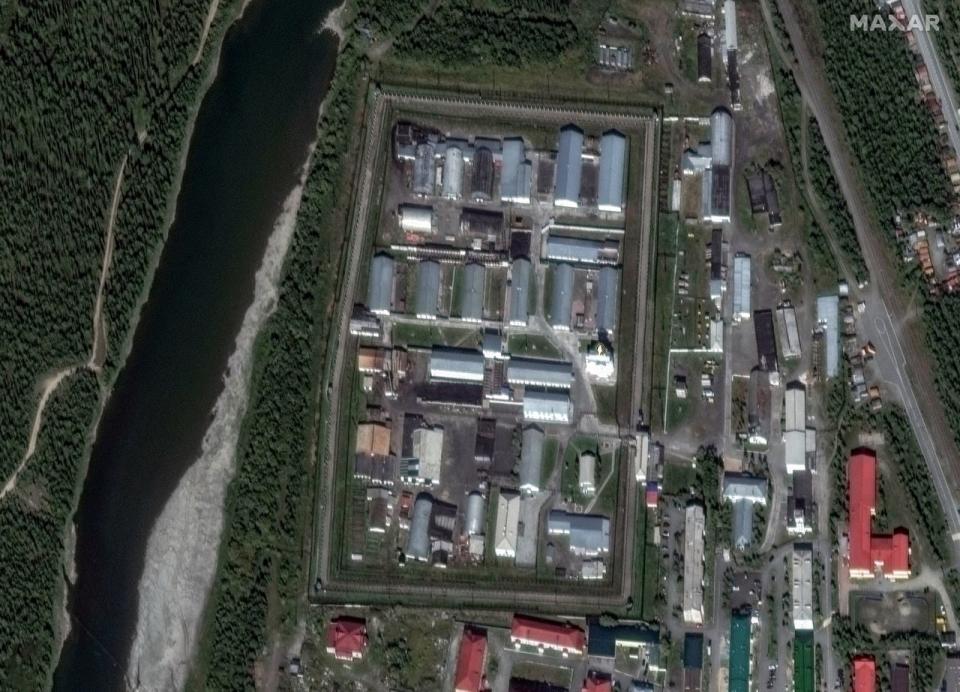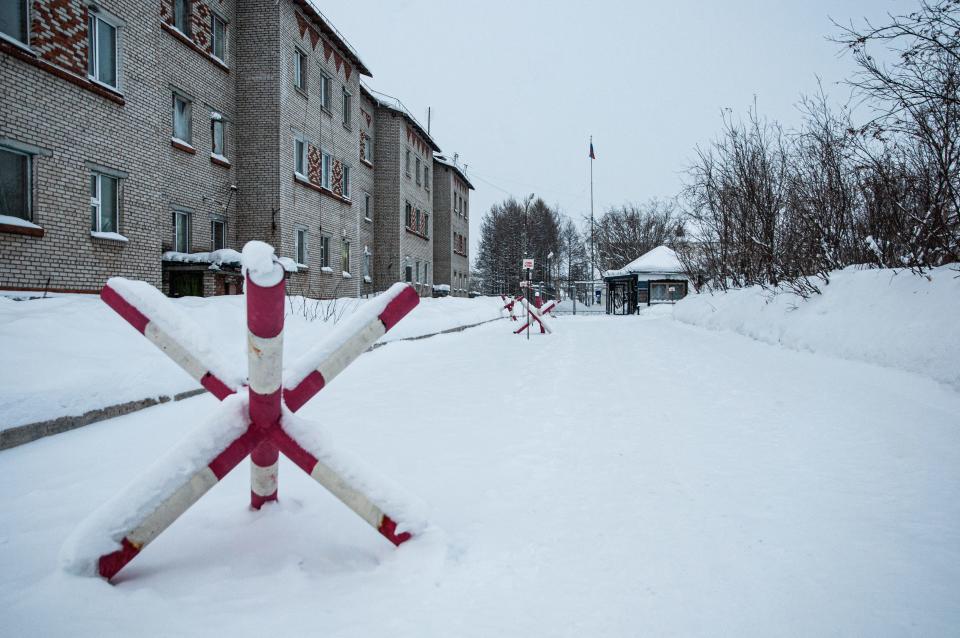Inside the deadly Russian Arctic prison where Alexey Navalny spent his last days
Alexey Navalny, the deceased Russian dissident, spent his last days in one of the country's harshest prisons.
Located near the Arctic Circle, the IK-3 penal colony is infamous for its terrible conditions.
One analyst said Russia's penal colonies are known for their austerity and dispiriting atmosphere.
Alexey Navalny, the Russian political dissident who died Friday at age 47, spent his final days in one of the country's harshest prisons.
In December, a spokesperson for Navalny said he had been transferred to IK-3, a penal colony about 40 miles north of the Arctic Circle.
"The conditions are quite terrible, it is clear that this is detention in maximum isolation," Igor Kalyapin, a human-rights defender, said of the facility in a Moscow Times story published the same month.
Navalny was a prominent Russian critic of President Vladimir Putin. The anti-corruption blogger turned politician almost died in 2020 after he was poisoned with a nerve agent.
Putin has denied accusations that Russian government agents were responsible for the 2020 assassination attempt.

After his recovery, Navalny returned to Russia despite knowing he could face imprisonment. He was detained shortly after his flight landed in Russia in January 2021.
Navalny was sentenced to 3 ½ years imprisonment in February 2021, though he was given credit for time spent under house arrest. His sentence was extended by nine years in March 2022 and then by another 19 in August.
Navalny died in prison on Friday, per Russia's Federal Penitentiary Service. The agency said the cause of Navalny's death has yet to be established.
Navalny might have joked about prison, but the reality of life in IK-3 was brutal

"I am your new Santa Claus," Navalny wrote in a post on X in December after arriving at IK-3.
The political prisoner said in a series of posts on the platform that it took him 20 days to get to the facility, which is also known as Polar Wolf.
"I don't say 'Ho-ho-ho,' but I do say 'Oh-oh-oh' when I look out of the window, where I can see a night, then the evening, and then the night again," Navalny wrote. "The 20 days of my transportation were pretty exhausting, but I'm still in a good mood, as befits a Santa Claus."
While Navalny did crack some dark jokes about prison life, inmates in Russia's penal colonies often have to contend with brutal living conditions.
In 2022, the US State Department said in its report on human-rights practices in Russia that prison conditions there "were often harsh and life-threatening."
"Overcrowding, abuse by guards and inmates, limited access to healthcare, food shortages, and inadequate sanitation were common in prisons, penal colonies, and other detention facilities," the report said.
"Russian penal institutions inflict profound and lasting physical and psychological harm on inmates," Tatiana Stanovaya, a senior fellow at the Carnegie Russia Eurasia Center, told The Telegraph recently.
The prisons, Stanovaya said, were "renowned for their austere conditions" and dispiriting atmosphere.

According to the BBC, Polar Wolf enforces a culture of collective punishment on its inmates.
For example, prisoners have been forced to stand out in the winter cold without any coats. During the hot summer, inmates have been forced to go shirtless when prison grounds were teeming with mosquitoes, the BBC reported.
"Conditions there are extremely harsh because the special regime is essentially legalized torture," an unnamed lawyer told Meduza, an independent media outlet in Riga, Latvia, in a story published Friday.
Mikho Khulilidze, a man who served a sentence in IK-3 on kidnapping charges, told the Russian news outlet Life in 2013 that prison guards physically abused him.
"When prisoners enter the colony, they are taken to the bathhouse," Khulilidze said. "When a person undresses and goes to wash, the water is turned off, and people in masks come in and start beating him."
"They put me on the floor and beat me with batons and fists on my buttocks, my head, my face, my ribs," he said.
Khulilidze told Life that his beating lasted about half an hour, and he wasn't given any medical assistance afterward.
On Friday, Russia's Federal Penitentiary Service said Navalny had felt unwell after taking a walk. He lost consciousness and was pronounced dead after medics failed to revive him.
Navalny had said in an X post on January 9 that he "will try to go for a walk no matter what the weather is."
"It's never been colder than -25°F. Even at that temperature, you can walk for more than half an hour, but only if you have time to grow a new nose, ears, and fingers," he wrote in a separate X post on January 9.
President Joe Biden and NATO secretary-general Jens Stoltenberg have both blamed the Russian government for Navalny's death.
"Russian authorities are going to tell their own story. But make no mistake, Putin is responsible for Navalny's death," Biden told journalists on Friday.
Read the original article on Business Insider


